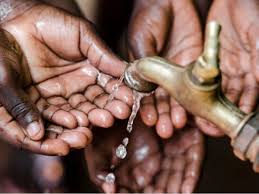A Call to Action: Building a Water-Secure Future
Thus, we are facing a choice which will decide the destiny of our world – the world we live in – the Earth. It is not simply an ecological crisis of the world water supply, but a problem of ethics and justice that challenges the very spirit of the human race’s conscience. Wise thinking therefore requires that the populace awakens to the new reality where water is best described as a limited natural resource.
Rethinking Water Usage
The first preventive measure that can be taken to seek solution of water crisis is to change our attitude towards utilization of water. Like any other country, New Zealanders have a tendency to deem water a matter of course; people shower, brush teeth, water gardens and lawns, and swim in private swimming pools. But this is a dangerous thought process which is in fact rather archaic. And one has to leave behind a ‘Waste Not, Want Not’ mentality and embrace a culture of water scarcity.
Small adjustments in our behavior pattern could cause a lot of difference. Conserving water, plumbing problems being repaired, and using less water-consuming gadgets and taps are solutions that can change much. For example, not using the water tap while brushing teeth, use lesser water in the shower, all these little measures can help save 1000s of liters of water per year. Another example from this sector is that the use of technologies such as drip irrigation in farming and the like helps to save large quantities of water as used in traditional methods.
Innovating for Water Security
Even though it consists the conserve approach, the water crisis can hardly be surmounted without innovativeness. Across the globe, important inventions are coming out for utilizing modern technologies in an efficient way and supply of water.
Desalination is one such innovation which takes the seawater and converts it into potable water. Despite its high costs, better technologies in renewable energy and improving recovery rates make desalination to be favorable in water scarce areas. Likewise, the systems of rain water harvesting where structures are put in place to channel rain water for later use are getting more developed and are widespread especially in the dry seasons.
Another promising area is recycling and reuse of water or wastewater whereby water is use multiple times. In many cities of the world, the water achieved by tertiary treatment is being used for irrigation, industrial uses and even for the supply of drinking water. This approach not only lowers water requirements of freshwater but also effects pollution control as it avoids discharge of polluted water to rivers and oceans.
Policy and Governance: The Role of Leadership
But the wonders of technology cannot resolve the water issue. One notable approach is that policy, and in extension governance, plays a central role in the sustainable and equitable management of water resources. Much as it is the duty of governments to provide legislation to protect water sources from extraction and pollution, they should be at the fore in providing and implementing the respective legislation. It also involves controlling the sectors that contribute to water pollution and making certain that farming does not harm the quality of both the soil and water.
Another instrument that can lead to water conservation and also fairness is the measure of the price of water. When water pricing mirrors the actual costs of water delivery and supply, then it can help to support the consumption of water sparingly as well as yielding revenues for improvements of water delivery systems. But the formulation of these policies has to be done in a way that will not exert too much pressure on the poor.
This is especially so given that the sources of water for water stressed areas are in most cases, found across international borders. The management of water resources that span across international borders entails policy making, bargaining factor and more importantly a common value of sustainable management of water resources. There are cases, including the fact of the cooperation in managing the Nile River, that illustrate how countries can share and conserve water.
A Shared Responsibility: The Role of Individuals
In the end, it is all of us that are to be held accountable for the failure to solve the problem of water scarcity. It is, however, important for governments and industries to do this, but this has to be complemented by people. We have to understand and apply water-saving practices in our everyday lives and this way, we will help in the achievement of sustainable living.
It can entail buying and or investing in goods and services embraced by organizations who give preference to water saving mechanisms and using political influence for the protection of water sources or merely creating awareness of the need to make water safe. The implication of this is the notion that total abstinence from catastrophe may be beyond an individual, but every action counts.
Water scarcity is one of the biggest challenges of the contemporary world that demands an extended and combined effort. It presents the world and its living, governing, and innovating differently and, therefore, poses a challenge to rethink all of this. It requires us to step up from the concept of ‘doing more with less’ to one that is focused on value creation in the long term. And, perhaps, most importantly, it urges us to become active subjects of change and it is not only for us but for the generations to come.
For, the future that is in store for us depends with the decisions that we take in the present, whether we will live in an environment of scarcity or of plenty! Today, people should learn about ways to economize water, promote innovative thinking, cooperate on the international level and make sure that water is still a valuable gift of nature for everybody. The need for action is immediate because the water crisis is not a problem that is forecast for the future – it is here now.





